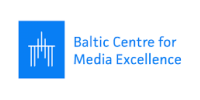DEVELOPING PRIMARY AND BASIC SCHOOL TEACHERS’ MEDIA COMPETENCIES
Deliverable 4.1 for the EU-funded project with the ID 118471, coordinated by the University of Tartu (UTARTU).
Maria Murumaa-Mengel | University of Tartu
Inger Klesment | University of Tartu
Gretel Juhansoo | University of Tartu
Maia Klaassen | University of Tartu
Annaliisa Post | University of Tartu
Katrin Sigijane | Tallinn University
Andres Kõnno | Tallinn University
Agnese Dāvidsone | Vidzeme University of Applied Sciences
Jānis Buholcs | Vidzeme University of Applied Sciences
Iveta Auniņa | Vidzeme University of Applied Sciences
Auksė Balčytienė | Vytautas Magnus University
Kristina Juraitė | Vytautas Magnus University
Lāsma Antoneviča | Baltic Center for Media Excellence
Introduction
It is contextually important to point out the unevenness in macro-level educational policies and the structure and placement of MILs within formal education in the Baltics. For example, MIL has been a part of the Estonian formal education curriculum for secondary education since 2011, and in autumn 2023, the Estonian Ministry of Education and Research declared MIL a compulsory part of general competencies in all school subjects at all ages. In Latvia and Lithuania, MIL is not a compulsory part of the curriculum, and the teaching of Media and Information Literacy (MIL from now on) in formal education is, therefore, teacher-dependent. Consequently, it is even more critical to provide ready-made materials.
This report is the deliverable for Task 4.1 (T4.1 from here on), with contributions from five of the BECID partners: Vidzeme University of Applied Sciences (ViA from now on), the University of Tartu (UTARTU), Tallinn University (TLU), Vytautas Magnus University (VMU) and Baltic Centre of Media Excellence (BCME). The task aimed to develop training programmes for both future and current teachers, but also for various non-and informal educators involved with teaching MILs.
TLU, VMU, ViA, UTARTU and BCME all led the collaborative efforts of collecting, comparing and reorganising MIL materials from all partners into a comprehensive whole. TLU piloted their vocational training program of 28 hours (1 ECT) tailored for Estonian in-service teachers (four trainings with 83 registered participants all up) and provided valuable insight into the existing gaps based on feedback. ViA contributed to T4.1 by compiling data on past MIL endeavours within the institution, evaluating their suitability for teacher incorporation into a toolkit, assessing existing media literacy resources and identifying teachers’ requirements.
UTARTU was responsible for organising the BaltsTeachMIL seminars in 2023 to scale up the results, covering and developing teacher materials on vital issues such as search skills, data literacy, fact-checking and problematic content on social media. Additionally, ViA co-hosted an online seminar in English for 50 Baltic educators, also focusing on MILs. TLU also organised the Zoominars in 2024, both in English and in Russian, to share best practices from their curriculum. In total, more than 580 educators participated in our Baltic Zoominars. VMU and BCME led the collaborative efforts of collecting, comparing and reorganising MIL materials from all partners into a comprehensive whole.
In summary, for current in-service teachers, we offered a flexible way for updating their MILs by providing a series of e-seminars that build upon existing in-service teachers’ study materials with a strong emphasis on the practical tasks, sub-skills, resources and lesson plans. We trained teachers in training on how to teach MILs. Additionally, we collected best practices to share from the courses created to – hopefully – light a fire in the readers of this report and encourage all to tap into the didactics of playful approaches to teaching MILs. We built the task on pre-existing materials built in previous projects and by localisation and contextualisation of international materials and research. Still, our primary focus was on generating new materials.
Whether the reader of this report is a teacher, researcher, journalist, training facilitator, youth worker, librarian, social pedagogue, policy maker or colleague from the EDMO network – we hope you find inspirational content in this report and hope you will contact any of the authors for editable full-length versions of the work done within T4.1.
Read the full report here:





